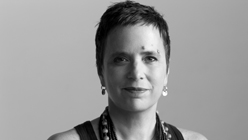There are some stories that get under your skin and into your psyche and they change everything. For Eve Ensler, activist and playwright best known for The Vagina Monologues, one such story caused her to lose faith in humanity. It marked the beginning of her journey into the world of cancer. How you interpret Eve Ensler’s new memoir, In the Body of the World, depends on how much power you think stories have. Did Ensler’s uterine cancer come from hearing so many stories of rape and violence, stories that inhabited her body, got under her skin? Did it come from the environment?
A chapter titled “How’d I Get It?” broadens this question and collapses it in humor:
Was it turquoise Popsicles?
Was it Epstein-Barr?
Was it in my blood?
Was it already decided?
Was it deet?
Was it that I didn’t cry enough?
Or cried too much?
Was it promiscuous sex?
All those arrests at nuclear power plants?
Sleeping in radioactive dust?
Was it my IUD?
Was it birth control pills?
Was it not enough boundaries?
Was it too many walls?
In the Body of the World is an intriguing meditation on illness and the power of stories, itself artfully wrapped around the thirteen-year-old conflict of one country — the Democratic Republic of Congo — and her persecuted women. In the introduction of this book Ensler describes how her father’s sexual abuse caused her to become disassociated from her body, and how this exile made her hunger for other women’s stories (stories about abuse and endurance), because she saw these stories as a way back home to her body. That is how Ensler finds herself in the Congo, where the atrocities committed against women do not bring her home, but rather cause despair.
It is cancer, actually, that reveals a way home: “Cancer,” she writes, “threw me through the window of my disassociation into the center of my body’s crisis. The Congo threw me deep into the crisis of the world, and these two experiences merged as I faced the disease and what I felt was the beginning of the end.”



